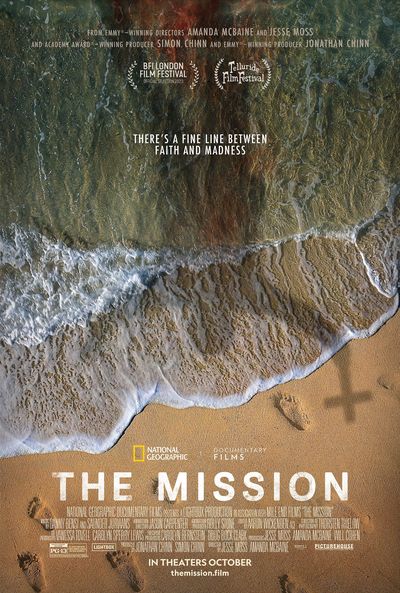Dan Webster: ‘Stupid and courageous and bold,’ the tale of John Chau brought forward in ‘The Mission’

Depending on your point of view, John Chau’s story is a sad one. Or it’s inspiring. Matters of religious faith are a personal exercise. Many of us either believe – or we don’t. The rest fall somewhere in between.
John Chau was a passionate Christian. And like many true-believers, he wanted to spread the word of his faith to those who, he was sure, needed to learn about the teachings of Jesus Christ.
However wise that conviction was, it led to his death. And the arguments over his fervent mission are as diverse as attitudes toward faith itself.
That, at least, is the position of “The Mission,” a documentary feature that played in theaters in October and is streaming on a number of services. It was co-directed by Amanda McBaine and Jesse Moss, the team responsible for the Emmy Award-winning documentary “Boys State.”
Using a variety of formats – including animation, snippets from home movies, talking-head interviews with friends, family and academics, and even scenes from popular movies such as “King Kong” and “The Goonies” – “The Mission” tries to untangle the story of Chau and what he attempted to do.
Chau was the youngest biracial child born to an expatriated Chinese psychiatrist father and a white organizer mother for the Christian service organization Chi Alpha. Devout to his religion, Chau – to hear his friends tell it – spoke early on of his desire to reach out to those who hadn’t been exposed to Christianity.
Sometime in his teens, he narrowed his focus to a spot in the archipelago Andaman Islands. Sitting in the northeastern Indian Ocean, most of the islands are controlled by India, which prohibits visitation. Moreover, Chau’s target group, the North Sentinelese Islanders, are resolutely private and actively repel outsiders – sometimes with force.
Chau was driven to approach the Sentinelese people, convinced that he needed to save them. Against the advice of some, but with the encouragement of others, he managed in 2018 to approach the island not once but twice. And the second time, though no one knows exactly how, he was murdered.
His death is still under investigation. But that isn’t the focus of McBaine’s and Moss’ film. Instead, their intent is to explore the reasons that drove Chau to undertake such a dangerous quest.
In doing so, they depend heavily on Chau’s own diary (read by the actor Lawrence Kao) and on a letter written to them by Chau’s father (read by the actor David Shih). Chau’s diary entries show him to be obsessed with his quest, while his father expresses regret that he wasn’t able to dissuade his son from what he considered to be a misguided undertaking.
Among the commentaries following Chau’s death, positive and negative, is one by a Chau acquaintance who said, “My friend did something stupid and courageous and bold.”
Pam Arlund, a board member for the evangelical missionary organization All Nations, had this response.
“There’s a fine line,” she said, “between faith and madness.”